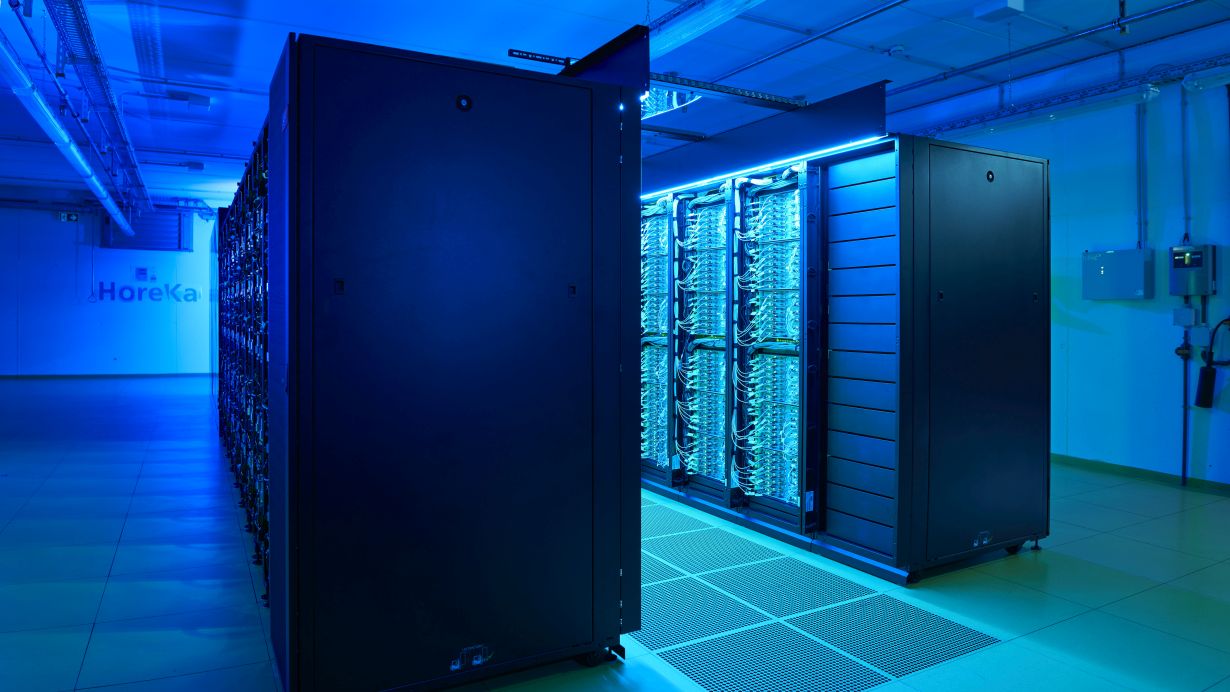Cyber 205 was the name of the first supercomputer purchased by the then Universität Karlsruhe in 1983. It had a computing capacity of up to 800 MegaFLOPS. For comparison: The capacity of an average PC today is in the range of GigaFLOPS, i.e. a thousand times more. HoreKa, the Karlsruhe High-performance Computer of Karlsruhe Institute of Technology (KIT), reaches 17 PetaFLOPS, which corresponds to the capacity of more than 150,000 laptops or about 21 million systems of the type Cyber 205. On Thursday, September 14, 2023, KIT did celebrate 40 years of supercomputing in Karlsruhe.
When it was commissioned in mid-2021, HoreKa, the supercomputer currently operated by KIT, was among the 15 highest-performing computers in Europe and ranked 52nd of the top 500 fastest computers in the world (TOP500). As regards energy efficiency, HoreKa even reached 13th place in the international supercomputer ranking (Green500). “Today, researchers are using supercomputers as a matter of course to obtain a more detailed understanding of highly complex natural and technical processes,” says Professor Martin Frank, Director of KIT’s Steinbuch Centre for Computing (SCC). “Research areas include materials sciences, earth systems sciences, energy and mobility research, engineering, life sciences, and particle and astroparticle physics.”
KIT Has Already Operated More than 30 Supercomputers
The importance of Karlsruhe to academic supercomputing is a result of continuous development: Since 1983, KIT and its predecessor institutions, Universität Karlsruhe and Karlsruhe Research Center, have operated more than 30 supercomputers. As early as in the 1960s, computing centers were established in Karlsruhe for both researchers and students.
The high-performance, large-scale and universal computers were constantly replaced by more modern and powerful models. The first supercomputer, a computer of the type Control Data Cyber 205, was installed in the computing center of Universität Karlsruhe in 1983. As it quickly worked to capacity, while the need for computing power increased, new supercomputers were purchased regularly. Cyber 205 computers were followed by computers of the VP and VPP series. “A milestone was the S600/20 computer that was ranked top in Germany in the first TOP500 ranking of 1993,” Frank says.
In close partnership with society, KIT develops solutions for urgent challenges – from climate change, energy transition and sustainable use of natural resources to artificial intelligence, sovereignty and an aging population. As The University in the Helmholtz Association, KIT unites scientific excellence from insight to application-driven research under one roof – and is thus in a unique position to drive this transformation. As a University of Excellence, KIT offers its more than 10,000 employees and 22,800 students outstanding opportunities to shape a sustainable and resilient future. KIT – Science for Impact.

